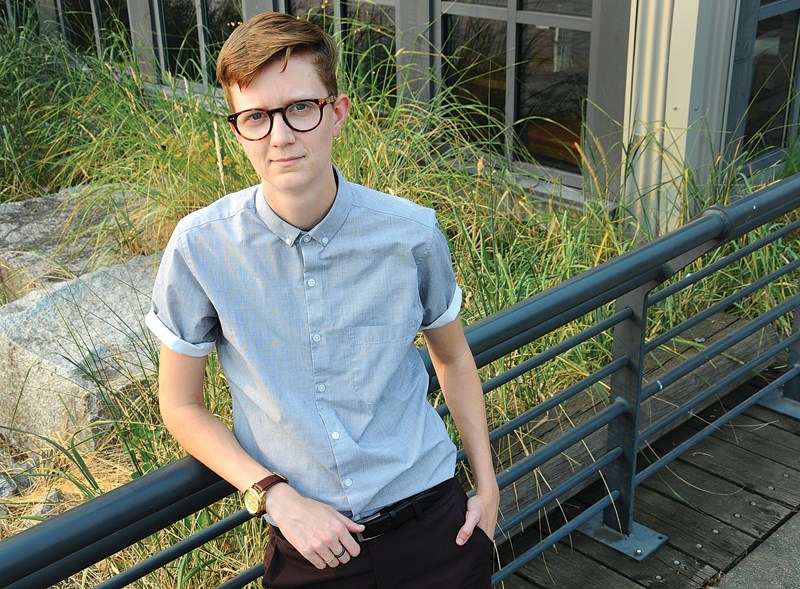As a case pitting religious freedom against the rights of gay and lesbian students heads to the country’s top court, one North Vancouver law student is working to ensure Canada protects LGBTQ rights.
Grace McDonell watched as debated swirled around Trinity Western University’s bid to open a law school in light of the Langley institution’s community covenant forbidding sex outside heterosexual marriage.
“I was disappointed to realize that I might be entering a profession with colleagues who have signed a contract, basically saying that my expression of love is vile,” explained McDonell, a Handsworth Secondary alum and current law student at Thompson Rivers University.
But while McDonell could only observe the court case in the B.C. Court of Appeal – which ruled in favour of Trinity Western – she’s set to be an active participant when the matter goes before the Supreme Court of Canada on Nov. 30.
McDonell is part of a coalition of lesbian, gay, bisexual, transgender and queer (LGBTQ) law students and allies dubbed the OutLaws who were recently granted intervenor status in the case.
That status – which was initially denied – allows the group of law students to file a 10-page argument and contribute five minutes of oral argument in Ottawa when the case is heard.
The legal case centres around whether Trinity Western should be allowed to open a law school given a covenant all students and faculty must sign at the religious institution.
TWU’s covenant forbids “sexual intimacy that violates the sacredness of marriage between a man and a woman.” The covenant is replete with footnotes referring to Bible passages emphasizing God’s judgment of adulterers and “all the sexually immoral.”
McDonell’s affidavit calls the covenant “an affront” to the dignity of LGBTQ students, warning that students may need to, “become closeted and lie about who they are” to attend TWU.
Endorsing the covenant “would be akin to institutionalizing shame about LGBTQ identity,” the affidavit states.
Arguing before the B.C. Court of Appeal in 2016, Trinity Western noted there were, on average, fewer than three instances of sexual misconduct by students per year. And while there have been occasional suspensions and withdrawals, no students have been expelled on the grounds of sexual misconduct, the university argued.
Given widespread support for marriage equality, the religious university community constitutes a minority that needs to be protected, the court ruled. “This case demonstrates that a well-intentioned majority acting in the name of tolerance and liberalism, can, if unchecked, impose its views on the minority in a manner that is in itself intolerant,” the court concluded.
But that ruling overlooked the prejudice the LGBTQ community has faced and continues to deal with, according to McDonell.
“There has been a history of discrimination against LGBTQ members of the community, and as members of that community we deserve to have a voice,” she said.
The school’s covenant could impact LGBTQ students in a variety of ways, McDonell said. “You should never have to suppress your identity and who you are in order to go to a law school,” McDonell said.
Because “very few LGTBQ students” would enrol at TWU, the overall impact on access to law schools would be “minimal,” according to B.C. Court of Appeal judges, who noted the university would only make up 60 out of the more than 2,500 law school seats in Canada.
Trinity Western has said all students are welcome, as long as they abide by the covenant.
“All unmarried student –gay or straight – are asked to refrain from sexual intimacy,” stated the school in a press release.
An appeal court in Ontario ruled the opposite way in a similar case there – deciding against the university’s position.



